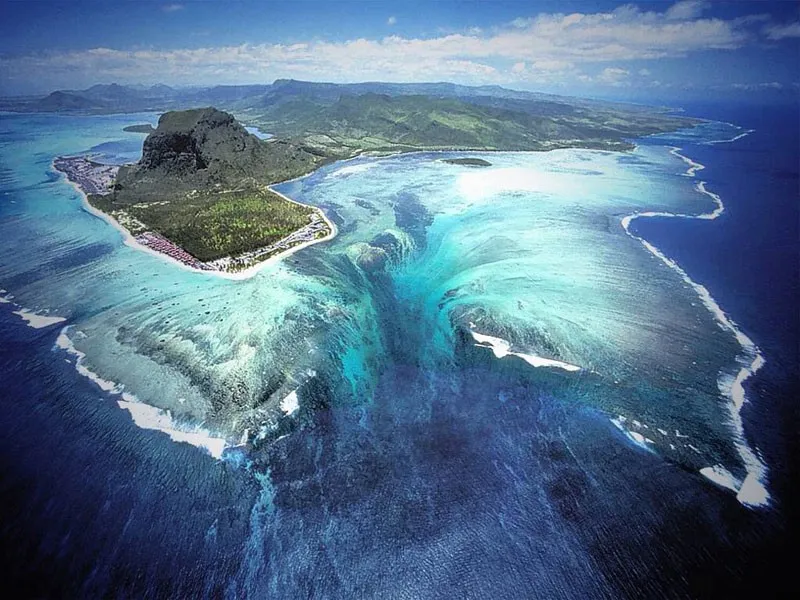Context:
The Denmark Strait cataract, the largest waterfall on Earth, is underwater and plays a key role in global ocean circulation and impacts climate and marine ecosystems.

- About Denmark Strait cataract
- It is a submarine waterfall between Iceland and Greenland.
- It is the world’s largest waterfall, with a drop of 11,500 feet (3,500 meters).
- The waterfall itself is about 6,600 feet (2,000 meters) tall.
- The water lands in a deep pool of cold water, spanning the rest of the slope.
- It is as wide as the Denmark Strait, about 300 miles (480 kilometers) across.
- The seabed drops over a length of 310 to 370 miles (500 to 600 km).
- Features of Underwater Waterfall
- Unlike land-based waterfalls, it is invisible to the naked eye.
- It moves silently and without dramatic visual effects.
- It is Submerged deep beneath the ocean’s surface.
- It exerts a significant impact on global ocean circulation and climate.
- It requires advanced oceanographic tools to study.
- Formation of Waterfall
- It was formed between 17,500 and 11,500 years ago during the last ice age.
- It was created by glaciers that shaped the landscape and allowed the waterfall to form.
- It straddles the Arctic Circle.
- The waterfall funnels polar waters from the Greenland, Norwegian, and Iceland seas into the Irminger Sea.
- Role in Global Ocean Circulation
- It plays a critical role in Earth’s ocean circulation system.
- It helps drive the thermohaline circulation (the ocean’s conveyor belt).
- It distributes heat, nutrients, and energy across vast distances, influencing weather patterns, sea levels, and marine ecosystems.
- It forms when cold, dense water from the Nordic Seas meets warmer, lighter water from the Atlantic Ocean.
- The temperature and salinity difference causes the cold water to cascade along the ocean floor.
- Impact on Ecosystems:
- It is essential for maintaining Earth’s ecosystem balance.
- It drives crucial ocean currents that distribute nutrients and energy.
- It directly influences global climate stability and marine life.

